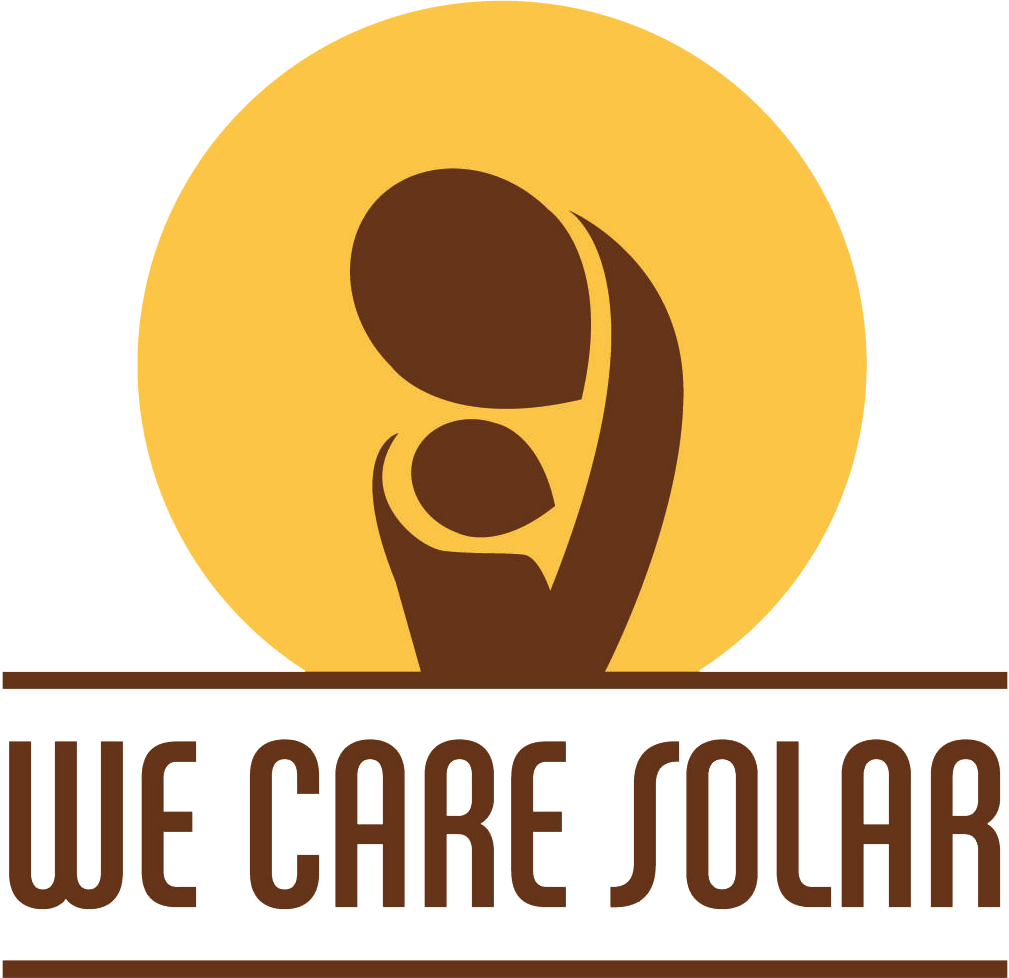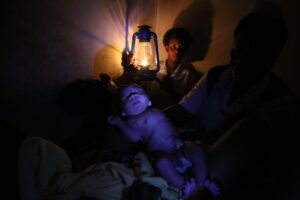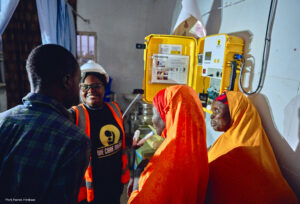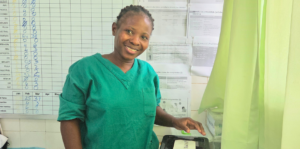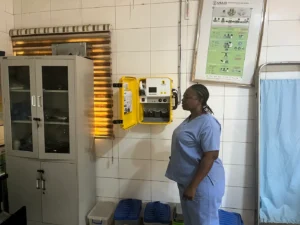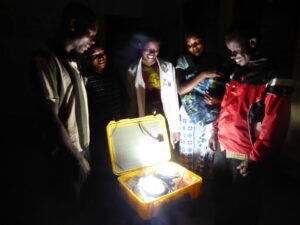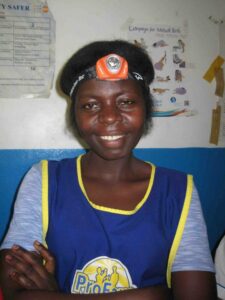 Imagine delivering a baby without light. Rosette Uwayezu, the 23-year-old midwife in charge of maternity services at Green Valley Health Center II, knows what its like to deliver babies in near darkness. Her facility is located in Rubanda District in South Western Uganda. Despite its small size and lack of electricity, Rosette and two colleagues provide health services for more than 3,000 people.
Imagine delivering a baby without light. Rosette Uwayezu, the 23-year-old midwife in charge of maternity services at Green Valley Health Center II, knows what its like to deliver babies in near darkness. Her facility is located in Rubanda District in South Western Uganda. Despite its small size and lack of electricity, Rosette and two colleagues provide health services for more than 3,000 people.
Rosette herself was shocked when she was first assigned to this facility. “I wondered how a small, understaffed facility with two rooms for maternity and no electrification and running water was serving ten villages.”
Rosette resorted to using a flashlight or the light from her own cell phone as she attended to her patients at night, often left alone to manage the delivery in near darkness.
“In most cases I had to improvise, put the phone in my mouth or try to hang the torch over the IV stand,” she explained. Keeping her cell phone charged was also a challenge, requiring the services of a local trading center to recharge.
Rosette recounts leaving a mother in the middle of a delivery in search of an alternative light source when her phone battery ran out and they were left in total darkness.
“I was terrified,” she recalled. “But imagine what was going through the mother’s head when this happened, being left in the dark given the already traumatic situation she was in?” Rosette was eventually able to borrow a torch light from the mother’s attendant. “Even though the delivery was successful, this was very risky. It was an experience I would never want to relive,” she admitted.
The lack of facility lighting was not only demoralizing for the health staff. It also discouraged expectant mothers from seeking care. Some women would journey to a distant health center if they knew the facility had light from a Solar Suitcase.
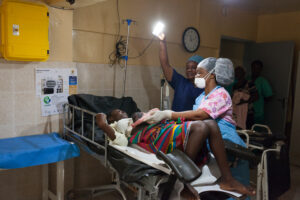 When Green Valley HC II received its own Solar Suitcase in April 2021, Rosette was impressed with the brightness of the overhead lights and the accessory headlamps. “The Solar Suitcase has already made a big difference at the facility since it was installed. This new technology has significantly improved the facility’s performance and credibility,” Rosette offered. “Green Valley used to have 3-4 deliveries per month. Since installation, deliveries increased to 8-10 per month even during the lockdown.”
When Green Valley HC II received its own Solar Suitcase in April 2021, Rosette was impressed with the brightness of the overhead lights and the accessory headlamps. “The Solar Suitcase has already made a big difference at the facility since it was installed. This new technology has significantly improved the facility’s performance and credibility,” Rosette offered. “Green Valley used to have 3-4 deliveries per month. Since installation, deliveries increased to 8-10 per month even during the lockdown.”
In addition to better lighting, the fetal Doppler included in the Solar Suitcase has enabled Rosette and the mother to listen to the fetal heart rate. When the fetal heart beat is strong, Rosette can assure a mother that her baby is doing well, or let mothers know when there is a problem.
“Mothers can come to the facility complaining about not feeling their babies kick or move for days. Having no scan [ultrasound] at the facility, the Doppler has made the confirmation of such complaints so much easier. I also do not have to explain a lot when the news is tragic since the mother cannot hear the fetal heartbeat herself with the Doppler.”
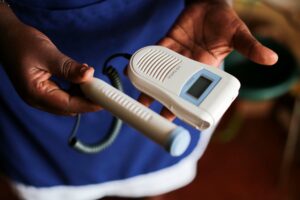
In addition to the fetal Doppler, the Solar Suitcase is equipped with phone charging and an infrared thermometer. “The temperature gun has been very helpful during the pandemic, enabling screening of all the patients who come to the facility,” Rosette explained. Having the cell phone charged all the time facilitates emergency calls and referrals of complicated cases.
Despite a heavy workload, Rosette has grown to love her job and has changed her perspective about the working conditions at the facility. “This has mainly been because of the joy my work brings to the mothers and the community and also because of the Solar Suitcase. It makes midwifery so much easier,” she exclaimed. “I can’t imagine working without the Solar Suitcase now that I have experienced its benefits.”
